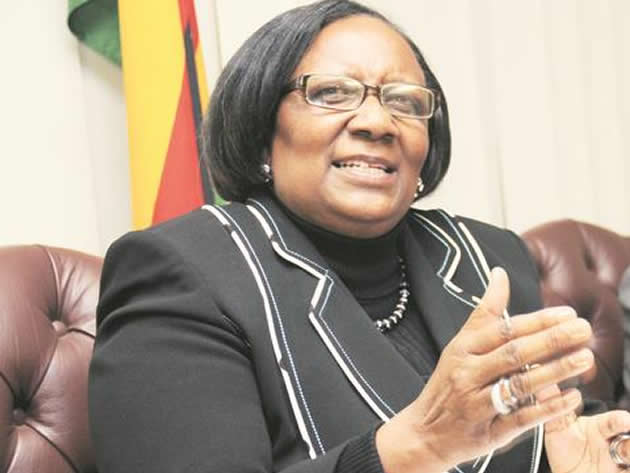African Union and the scourge of terrorism

Simon Allison Correspondent
The African Union’s (AU) counter-terrorism policy isn’t working. Looking back at 2015 and the many terrorist incidents that punctuated news headlines in Africa, it is difficult to escape this conclusion.
There was the attack by al-Shabaab gunmen on Garissa University in Kenya in April, which killed 148 people — mostly students. There was the Boko Haram massacre of hundreds of people in Baga, a Nigerian village, in January.
There was the siege of the Radisson Blu hotel in Bamako, Mali; the mass shooting in Sousse, Tunisia; the suicide bomber in Mogadishu, Somalia; the downed Russian airliner in Sharm el-Sheikh, Egypt.
The list goes on and on, and the scourge seems to continue as earlier this month, the attack in Burkina Faso left at least 29 people dead. From small attacks to large, from East to West to North Africa, terrorism is undoubtedly one of the most severe challenges facing the continent. It claims thousands of lives and negatively impacts on millions more.
The nature of this threat ignores legal borders and traditional concepts of sovereignty, which means that a unified, co-ordinated counter-terrorism strategy is necessary to defeat it. And while there is no doubt that the AU is taking this challenge seriously, its response has yet to stop the tide of violence. In fact, at a meeting late last year, AU Commissioner for Peace and Security Smaïl Chergui said that terrorism in Africa was increasing.
“Terrorism and violent extremism remain major sources of concern to the African Union, which is convinced that countering these phenomena must underlie the efforts aimed at putting an end to the factors favouring their spread,” he said.
As the continental body gathered in Addis Ababa this week for the 26th AU Summit, terrorism would no doubt have been a major item on the agenda. Is the AU doing enough to combat terrorism? And why aren’t its existing counter-terrorism initiatives more effective?
It’s not like there isn’t already a comprehensive counter-terrorism strategy in place. Between the Algiers Convention on the Prevention and Combating of Terrorism, and the 2004 Protocol to that convention (which only entered into force in 2014), the AU has crafted a relatively comprehensive and progressive legal framework for counter-terrorism.
This framework defines a terrorist act, and regulates how states should work together to investigate and prosecute such acts.
These agreements are complemented by the 2002 Algiers Plan of Action on the Prevention and Combating of Terrorism in Africa, which outlined concrete steps that nations could take to protect themselves from terrorism. These included proposed security measures such as computerised immigration records, biometric passports, and a continent-wide “passport stop list” of suspected terrorists.
The Algiers Plan also established the African Centre for the Study and Research on Terrorism (ACSRT); an Algiers-based research institute intended to act as a central knowledge hub for terrorist activity and counter-terrorism best practice.
The final piece of the AU’s counter-terrorism policy jigsaw is the African Model Anti-Terrorism Law, a legislative blueprint from which all African countries can draw when creating their own domestic counter-terrorism laws.
In a March 2015 policy brief on this subject, titled “Good talk, not enough action: the AU’s counter-terrorism architecture, and why it matters”, the Institute for Security Studies said the AU had made impressive strides in creating the necessary policy.
“The only body on the continent capable of creating a comprehensive continental counter-terrorism strategy. To the AU’s credit, it has done so. The Algiers Convention is a solid start, and the 2004 protocol makes it even stronger.
In strongly condemning acts of terrorism and outlining how states should deal with the problem, both individually and together, these legal instruments provide a sound framework from which states can develop their own counter-terrorism policies. Coupled with leadership from the PSC and research and advice from the ACSRT, this framework should have already made headway in reducing terrorism in Africa,” it said.
Which begs the question: with such a good framework, why has so little headway been made? The answer, as always, is complicated. In part, it’s because terrorism is not a short-term phenomenon, which means the response to terrorism can’t be short term either. In other words, these things can take years to come to fruition. In part, it’s because Africa is not immune to the global increase in terrorist activity, making it difficult to discern any signs of progress.
These are factors largely out of the AU’s control. But there’s another factor at play. Any policy is only as good as its implementation, and currently the AU’s counter-terrorism policy is not being implemented effectively.
A case in point: it took more than a decade for the Algiers Protocol to come into force, and even today only 15 member states have ratified it. Among those who have not ratified are key actors in the fight against terrorism, including Kenya, Nigeria and Somalia. Meanwhile, only a third have passed specific counter-terrorism laws as recommended by the AU (for which the African Model Anti-Terrorism Law is the template).
The reluctance of member states to embrace the AU’s counter-terrorism policy is fatal to the success of that policy. There can be no coordinated response to terrorism if the main players refuse the AU’s attempts to coordinate it (and there is no comparable body offering a better alternative).
At the same time, the AU itself can do more to uphold its end of the bargain. The ACSRT, established in 2004, has the potential to be a vital resource, but it remains chronically under-funded and under-staffed.
Discussions around terrorism should avoid trying to reinvent the wheel. An effective continental counter-terrorism framework exists — now it is up to member states, and the AU itself, to implement it.










Comments